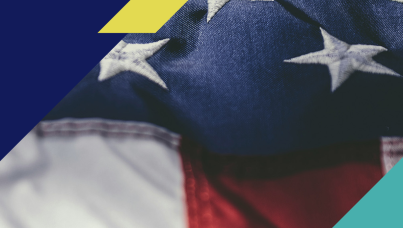

More than four in five small businesses say partisan gridlock is a serious problem in the federal government
Washington, DC, September 24, 2024 — The Q3 2024 MetLife/U.S. Chamber of Commerce Small Business Index is 71.2, similar to both last quarter’s Index Score of 69.5 and sentiments from this time last year (69.2). Driving this continued positive sentiment among small businesses are bullish expectations for future revenue and optimistic plans for next year’s headcount. The economy is still top of mind for small business owners and decision-makers this quarter. Inflation remains the top concern, and—new this quarter—the economy and inflation combined is the single most important issue that small businesses would like a new Congress and presidential administration to address in 2025. Further, small businesses’ attitudes towards their own local environment have softened slightly, but not significantly.
As we approach the 2024 presidential election, the vast majority of small businesses see partisan gridlock as a serious problem. Compared to four years ago, more small businesses now believe it is important for political leaders to compromise, rather than stick to their beliefs, to get things done.
For more information about this study, please click here.
About the Study
These are the findings of an Ipsos poll conducted between July 18 – August 2, 2024. For this survey, a sample of 752 small business owners and operators age 18+ from the continental U.S., Alaska, and Hawaii was interviewed online in English.
The sample was randomly drawn from partner online panel sources that specialize in B2B sample and does not rely on a population frame in the traditional sense. Ipsos uses fixed sample targets, unique to the study, in drawing sample. Small businesses are defined in this study as companies with 500 or fewer employees that are not sole proprietorships. This sample calibrates respondent characteristics to be representative of the U.S. small business population using standard procedures such as raking-ratio adjustments. The sample drawn for this study reflects fixed sample targets on firmographics. Post-hoc weights were made to the population characteristics on region, industry sector and size of business. The source of these population targets is U.S. Census 2021 Statistics of U.S. Businesses dataset. Additional post-hoc weights were made to the population characteristics on the gender of the business’s owner and whether the business is minority-owned or not. The source of these two weight variables is the Small Business Administration’s 2023 Small Business Profiles.
Statistical margins of error are not applicable to online non-probability polls. All sample surveys and polls may be subject to other sources of error, including, but not limited to coverage error and measurement error. Where figures do not sum to 100, this is due to the effects of rounding. The precision of Ipsos online polls is measured using a credibility interval. In this case, the poll has a credibility interval of plus or minus 4.4 percentage points for all respondents. Ipsos calculates a design effect (DEFF) for each study based on the variation of the weights, following the formula of Kish (1965). This study had a credibility interval adjusted for design effect of the following (n=752, DEFF=1.5, adjusted Confidence Interval=+/- 5.9 percentage points).
Starting with the March 2020 survey, small business decision makers are reached via an online survey, in place of the typical phone-based approach. This methodological shift was in response to lower anticipated response rates in dialing owners at their businesses as a result of mandated closures related to the COVID-19 outbreak. Switching from a phone to online approach may have also generated a mode effect.
For more information on this news release, please contact:
Mallory Newall
Vice President, US
Public Affairs
+1 202 374 2613
About Ipsos
Ipsos is one of the largest market research and polling companies globally, operating in 90 markets and employing over 18,000 people.
Our passionately curious research professionals, analysts and scientists have built unique multi-specialist capabilities that provide true understanding and powerful insights into the actions, opinions and motivations of citizens, consumers, patients, customers or employees. Our 75 solutions are based on primary data from our surveys, social media monitoring, and qualitative or observational techniques.
Our tagline "Game Changers" sums up our ambition to help our 5,000 customers move confidently through a rapidly changing world.
Founded in France in 1975, Ipsos has been listed on the Euronext Paris since July 1, 1999. The company is part of the SBF 120 and Mid-60 indices and is eligible for the Deferred Settlement Service (SRD).ISIN code FR0000073298, Reuters ISOS.PA, Bloomberg IPS:FP www.ipsos.com



